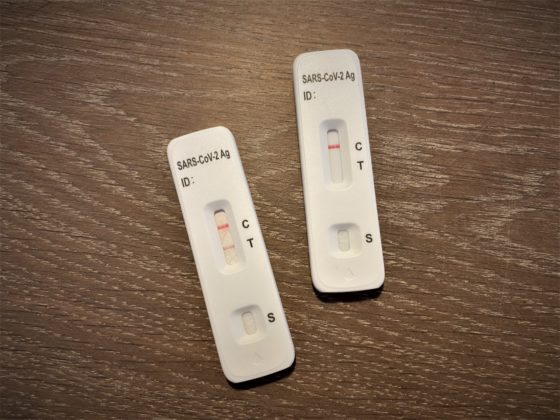Self testing to take priority as Dutch devise long-term coronavirus strategy


The Dutch government on Friday published more details about its long-term strategy for dealing with coronavirus, including a decision to end regional health board testing for most people.
That means that from April 11, people who are positive for coronavirus after using a self test at home will no longer be asked to have the outcome confirmed by an official regional health board testing centre. Nor will positive tests be registered centrally.
However, regional health board testing will remain an option for people who need proof of recovery to travel and who cannot use a self test. Large scale tests will also be resumed quickly in case of a major outbreak.
Self testing will not be paid for by the government. ‘The cabinet is calling on society to take responsibility and is looking to the different sectors to stimulate self testing,’ the document said.
As stated earlier, the prevention strategy will focus on personal responsibility, although the details still have to be worked out. ‘Our entire society will work together on putting together and implementing the strategy,’ health minister Ernst Kuipers said.
The government is basing its approach on four possible scenarios, ranging from a mild version of the disease similar to a cold, to a ‘worst case scenario’ involving serious illness, death and excess pressure on the health service.
Sector plans
What the official reaction should be in each situation is now being devised, together with employer and sector organisations, health care experts and others.
Sectors themselves, such as the hospitality industry or cultural sector, are being asked to draw up their own plans to prevent the virus spreading quickly, such as working out walking routes or imposing limits on visitor numbers.
In particular, keeping schools and colleges open, and organized childcare functioning, are the top priority, the 39-page report says.
‘The aim of the strategy is to guarantee an open society, even if we end up in an disadvantageous scenario,’ Kuipers said.
However, should a serious outbreak of a dangerous variant occur, then testing, coronavirus passes and measures to reduce contact between people may all be brought back, Kuipers said.
Ministers will send an update on the plans to parliament in June.
Thank you for donating to DutchNews.nl.
We could not provide the Dutch News service, and keep it free of charge, without the generous support of our readers. Your donations allow us to report on issues you tell us matter, and provide you with a summary of the most important Dutch news each day.
Make a donation